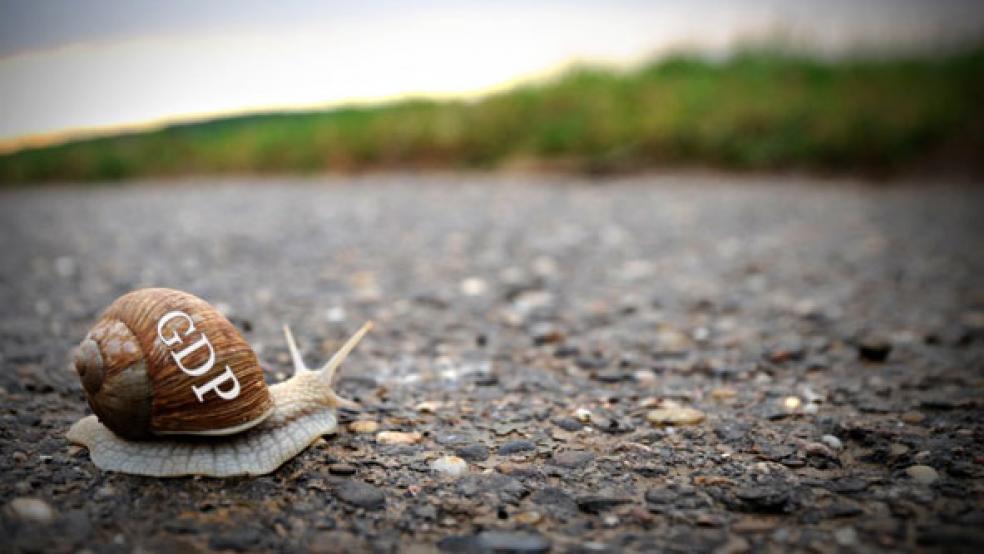Post-government shutdown economic data from private surveys over the past two days have given us the first good look at the effect of the October fiscal crisis in Washington, D.C., on the American economy.
The results of the surveys are not pleasant. Markit's flash U.S. manufacturing Purchasing Managers Index survey revealed the first monthly contraction in manufacturing output since September 2009. The University of Michigan's consumer confidence survey revealed a sharp drop in sentiment over the course of October.
Wall Street economists largely expect this to be a minor episode before the economy finally accelerates in 2014.
ISI Chairman Ed Hyman pegs the odds that the economy appears to accelerate over the next six weeks at 60%.
However, he says a frightening new "shadow consensus" is emerging that economic acceleration will never come.
In a note to clients, Hyman describes the scenario:
Growth remains at around +2.0% -- odds 35%. Under this scenario, which is becoming the shadow consensus, nominal GDP would be +3.0%.
Revenues for S&P companies would be +4.0%, reflecting global growth. Profits would increase +4.0% (flat margins), and EPS would increase +5.0% with stock buybacks.
So earnings a year from now would be $112, which with a P/E of 18 -- which as calculated from Graham and Dodd’s equation -- would put the S&P at 2016. Inflation remains tame. Central banks remain accommodative. We “never” have another recession. So, Plan B would be just fine for asset prices.
Continued monetary easing, continued stock market gains, and a continued lackluster economic recovery. In short: more of the same.
Dominic Konstam, global head of rates research at Deutsche Bank, believes the U.S. economy is already entering into a "late-cycle" stage.
"A growing number of indicators are showing late-cycle dynamics, and while this need not imply a recession it might well indicate a shift into a period of slower growth and lower inflation," he writes in a recent note to clients. "All else equal, our investment model that is derived from profits now clearly shows falling investment spend in 2014. So much for animal spirits: the corporate sector has little economic reason to invest, animal or not."
Konstam, along with Nomura chief economist Richard Koo, believe the rise in interest rates sparked by talk of tapering quantitative easing from the Fed earlier this summer hindered the economy to the point where the central bank was unable to then justify its decision to taper later on based on the economic data.
Koo calls this concept the "QE trap." The economist visited U.S. clients and Fed officials in a recent trip, and he said no one was able to refute his theory.
Yesterday, a research piece making the rounds on Wall Street bond trading desks asserted that the Fed had hit the reset button on tapering.
Part of this new shadow consensus is the notion that the Fed may have blown its chance to pull back a bit in September.
This article originally appeared at Business Insider. Read more from Business Insider:
Twitter's IPO Roadshow Presentation: Here's What Twitter Will Be Telling Investors
How The White House Will Try To Fix The Obamacare By The End Of November
The Fabulous Life of Elon Musk




